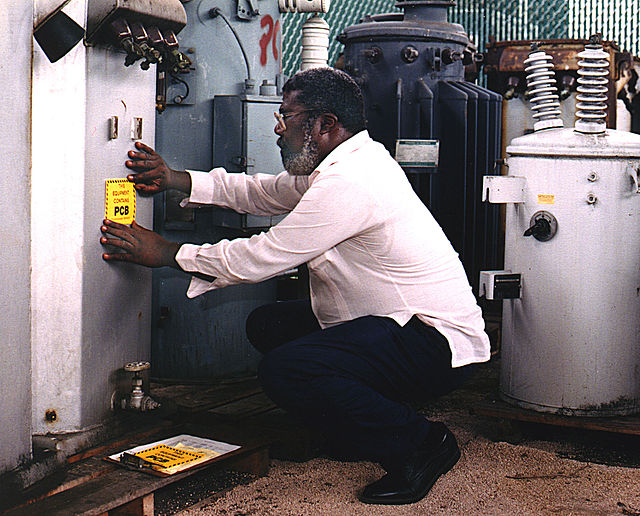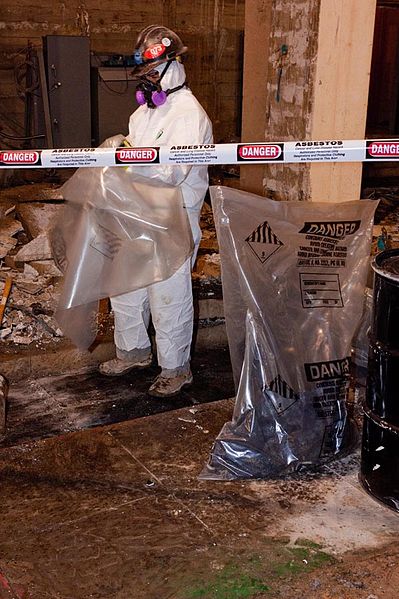Polychlorinated biphenyls (PCBs) are highly carcinogenic chemical compounds, formerly used in industrial and consumer products, whose production was banned in the United States by the Toxic Substances Control Act in 1976 and internationally by the Stockholm Convention on Persistent Organic Pollutants in 2001.
PCB warning label on a power transformer known to contain PCBs
Labelling transformers containing PCBs
Old power transformers are a major source of PCBs. Even units not originally filled with PCB may be contaminated, since PCB and oil mix freely and any given transformer may have been refilled from hoses or tanks also used with PCBs.
Toxic Substances Control Act of 1976
The Toxic Substances Control Act (TSCA) is a United States law, passed by the 94th United States Congress in 1976 and administered by the United States Environmental Protection Agency (EPA), that regulates chemicals not regulated by other U.S. federal statutes, including chemicals already in commerce and the introduction of new chemicals. When the TSCA was put into place, all existing chemicals were considered to be safe for use and subsequently grandfathered in. Its three main objectives are to assess and regulate new commercial chemicals before they enter the market, to regulate chemicals already existing in 1976 that posed an "unreasonable risk of injury to health or the environment", as for example PCBs, lead, mercury and radon, and to regulate these chemicals' distribution and use.
Labeling PCB-containing transformers
EPA flyer on lead-based paint disclosure
Asbestos abatement





